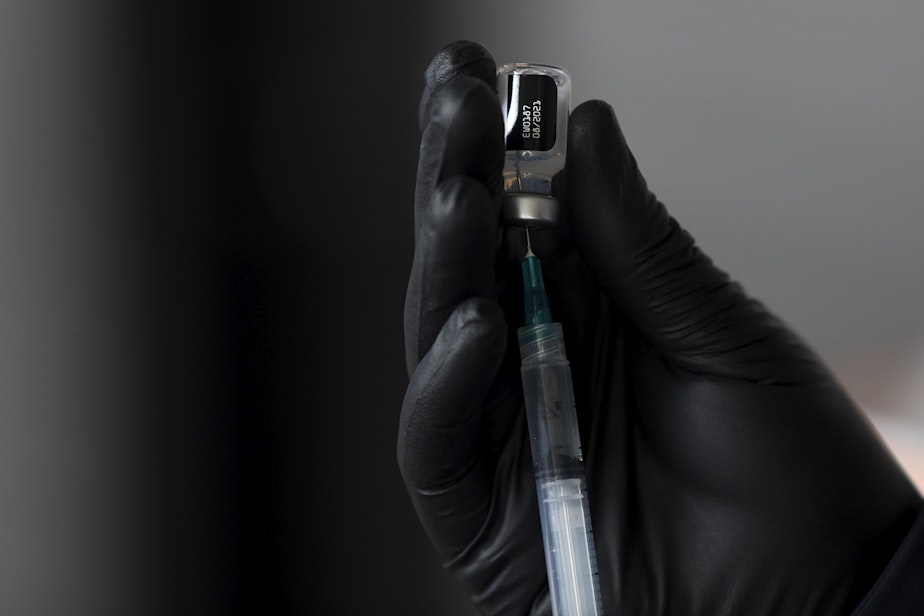'Not a time to panic.' Washington health officials urge vaccines, boosters with omicron on the horizon

Washington state health officials are doubling down on their plea for people to get vaccinated. This comes as the first U.S. case of the Covid-19 omicron variant has been detected in California.
“Don’t be surprised if you get a positive case of omicron variant here in the state of Washington,” said state secretary of health, Dr. Umair Shah during a media briefing Wednesday.
“It’s not a time to panic, it is what it is,” he said.
Shah said it’s a time to focus on prevention.
"What omicron has done is remind us this pandemic is far from over. But what's different from a year ago is that we have an incredible tool," he said.
RELATED: Coronavirus variants seem to 'evade immunity.' Here's what that really means
Sponsored
With concern around omicron, and the holiday season approaching, Shah said it’s critical for people who are unvaccinated to get their initial shots.
Sponsored
Nearly 81% of people 12 and older in Washington have had at least one dose, according to the state. That still leaves a chunk of the state unprotected.
Shah also stressed the importance of booster shots for those who are eligible. Anyone over 18 who had a final dose of the Moderna or Pfizer vaccines at least six months ago, or the single shot Johnson and Johnson vaccine at least two months ago, should get a booster, according to the CDC.
“Now the message is very simple, it’s very clear,” Shah said. “Please get your booster and get it today.”
With increased interest and eligibility, it can be tough to find a booster appointment in King County at the moment.
Shah said people shouldn’t be overly alarmed if they can’t get their shot immediately. He said people aren’t left with zero protection without a booster, but like many vaccines, the efficacy of the Covid-19 vaccines wanes over time so another shot is recommended to increase protection.
Sponsored
Along with vaccination and booster shots, Shah said people should also keep masking.
He said testing is also important, especially for people who are unvaccinated, those who are traveling, and those who feel sick.
A lot remains unknown about the omicron variant and what impact it will have on the state’s healthcare system.
But virologists in the state are on the hunt for cases here and officials say they’re confident they’ll be able to detect it when it arrives. Labs are sequencing the genomes of a portion of positive tests to monitor which variants are in the community, and have been doing so for over a year.
State epidemiologist Dr. Scott Lindquist said the state has also asked labs to run another testing method to rapidly screen for omicron cases.
Sponsored
To date, no cases have yet been detected in Washington.
“The biggest concern we have about any variant is: Is it more infectious? And that is the concern for omicron,” Lindquist said.
With the holidays approaching, experts recommend that people get vaccinated and gather with others who are also vaccinated.
If there are unvaccinated people in attendance they said masking and distancing are important.
For those who are traveling, testing requirements may differ depending on the airline and destination so passengers are encouraged to do their research.
Sponsored
In general, experts recommended during the briefing Wednesday that people test three to five days after they arrive at their destination and again three to five days after they return home.
Anyone who tests positive should isolate and contact those they’ve with whom they’ve had contact.
Shah said people traveling over the holiday season should also be thinking about where they’re traveling to and what’s happening in that community.
“If you are going into a community or a state where there is a surge… we do recommend that you consider what steps you’re going to take to protect yourself and whether you should even travel,” Shah said.




